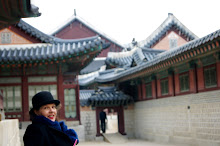This is in regard to a conversation I'm currently having with someone, so if you're not that someone you will probably not get it:
1) Back when I was teaching high school, I had to put together a unit on "Lord of the Flies" and used my own copy of the book to get together very interesting work tracing progressively through Ralph's dreams. Needless to say, the kids had no idea what it was about because the version they were given to read didn't have any reference to Ralph's dreams at all.
2) When I was teaching at university, we had teach a unit on "Pride and Prejudice", a book I thought I didn't have to re-read since I'd read so many times I thought I practically knew it off my heart. But then I couldn't understand the essay question - something about masks, cross-dressing and pretense - and thus realised I had to read the book again, and I couldn't believe it. There was so much stuff in the university version that wasn't in any copy I'd come across before: like Lieutenant Denny being both gay and a secret transvestite (I did wonder why none of the Bennet girls considered him husband material) who comes out of the closet at Lydia's behest and then Lydia adopts the male role and starts wearing men's clothes to compliment Denny's female clothes, scandalising everyone in town, and by the time Elizabeth returns from her holiday, things have gone so far the couple are planning a cross-gender faux marriage. Whoever knew - and I've read and heard many arguments about Jane Austen's character's conventional little worlds - that Jane Austen even knew about these sorts of things, let alone wrote about them.
3) Over the years I had a great many arguments about who Pip marries at the end of "Great Expectations". I KNEW he married that unnamed girl he met in India but all these very silly people kept insisting he married Estelle. I had read my childhood copy so many times, I knew that I knew what really happened but then, only a few years ago, after yet another argument, I reread the book just to reassure myself I was indeed right and everyone else was all wrong but to my horror I discovered that he did indeed marry Estelle. This remained a mystery for several years until I discovered that George Bernard Shaw was so outraged that Charles Dickens was forced to change the ending of "Great Expectations" - so that Pip marries Estelle - that he himself published the original Dickens version wherein Pip marries the girl he meets in India. And since he only published 1000 copies of this version, they are now worth a veritable fortune ... and, dammit, I have no idea what became of my childhood copy of this treasure.
4) There was a passage in Ernest Hemingway's "Snows of Kilimanjaro" about the jackals' footprints around a waterhole that I once used as my central thesis in a university essay. I was at that time into looking up imagery in my "Biblical Concordance" and it was there I discovered that the image of a jackal's footprints around a waterhole was in a reference to the punishment god metes out on those men who "put away a good wife in order to marry a rich woman", which is precisely what this mysterious novel is about: exactly tracing all the punishments each in turn. It was a clear as clear. However, when I submitted the essay, Nicholas said I had to rewrite it because there was absolutely no passage about jackal's footprints in the version I was MEANT to have read, which meant I was then as confused as to what the book was about as the rest of the world is.
So those are four examples of the great many I could tell you about how different versions of novels can really really screw you up.
Subscribe to:
Post Comments (Atom)






No comments:
Post a Comment